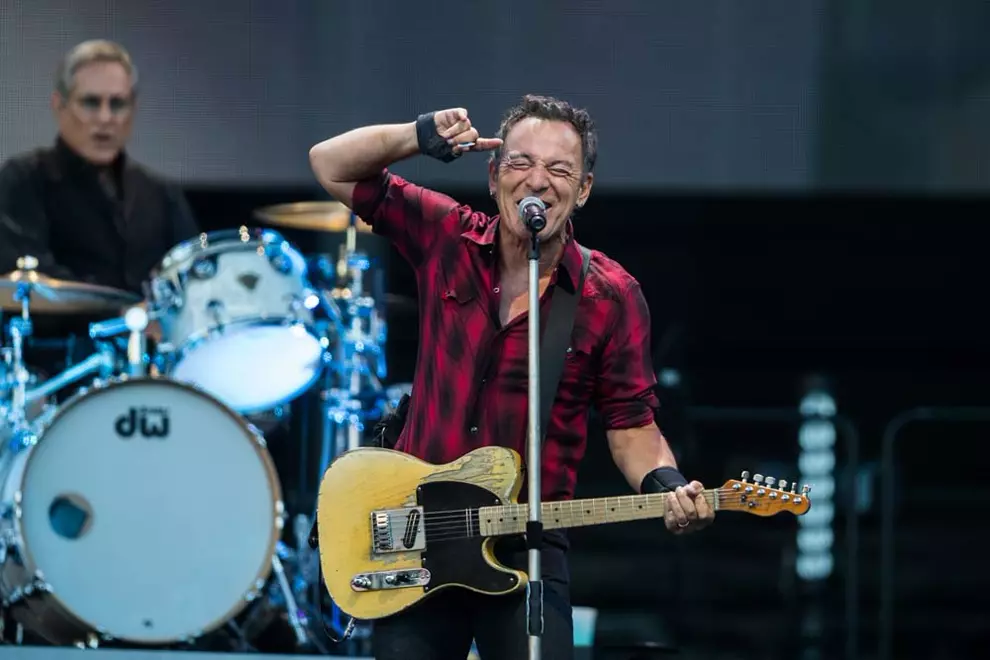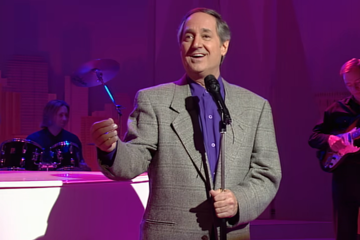 Bruce Springsteen
Bruce SpringsteenBruce Springsteen fans in the US expressed extreme disappointment when tickets to The Boss’ tour were listed for up to $5,000 earlier this month, a peak made possible due to Ticketmaster’s controversial “dynamic pricing” model, and it’s a system that would be bad news for Australian punters if it were more widely introduced over here.
The algorithm reacts to demand and when that increases, usually when tickets first go on sale, prices increase accordingly, which is why some “platinum" tickets to Springsteen's tour were listed for an eye-watering sum.
The justification for using that model is that the artist will see more of the profits, instead of scalpers, who play a similar game in the resale market, and Ticketmaster US issued a statement following the fallout stating that “prices and formats are consistent with industry standards for top performers”.
READ MORE: Ticketmaster Hits Back At Pricing Controversy
According to Oztix co-founder Brian “Smash” Chladil, dynamic pricing is used within the airline and accommodation industry “with great effectiveness”, “which is probably how it found its way to entertainment tickets."
“There is a business case and a moral case,” Chladil told The Music.
Don't miss a beat with our FREE daily newsletter
“I am sure ticket companies and promoters love it because it increases the earn to all of them, and the artist too, but I fail to see any benefit to consumers at all.
“It really is a money grab for large public corporations. Why should consumers pay more when demand is higher? Do these companies charge less when demand is weak?”
Chladil also highlighted that artist managers and agents negotiate with the promoter to set ticket prices to cover the tour costs, marketing and profit for all involved and those figures are “generally set as high as they think the market will bear”.
“So one has to ask, why go higher just because the demand is higher? Chladil added.
“The moral question is should promoters and bands profiteer from un-expected demand? If they expected the demand, they would have increased the prices anyway.
“Oztix doesn’t engage in the practice, nor would we. It’s called being ethical. Maybe these large companies should try it one day, it feels good.”
Springsteen's manager Jon Landau has since commented on the controversy, telling The New York Times: “In pricing tickets for this tour, we looked carefully at what our peers have been doing. We chose prices that are lower than some and on par with others.
“Regardless of the commentary about a modest number of tickets costing $1,000 or more, our true average ticket price has been in the mid-$200 range.
“I believe that in today’s environment, that is a fair price to see someone universally regarded as among the very greatest artists of his generation.”
Only 11.8% of the Springsteen tickets listed were “platinum”, and thus subject to dynamic pricing, with the ticketing giant stating that only 1.3% actually sold for over $1000US. The average price of all tickets sold was $262US and 56% were sold for under $200US.
Other ticketing outlets have some form of dynamic ticket pricing, with Ticketek offering 'Ultimate Tickets' to certain events, while websites such as Lasttix. do offer cheaper tickets when demand is lower.
















